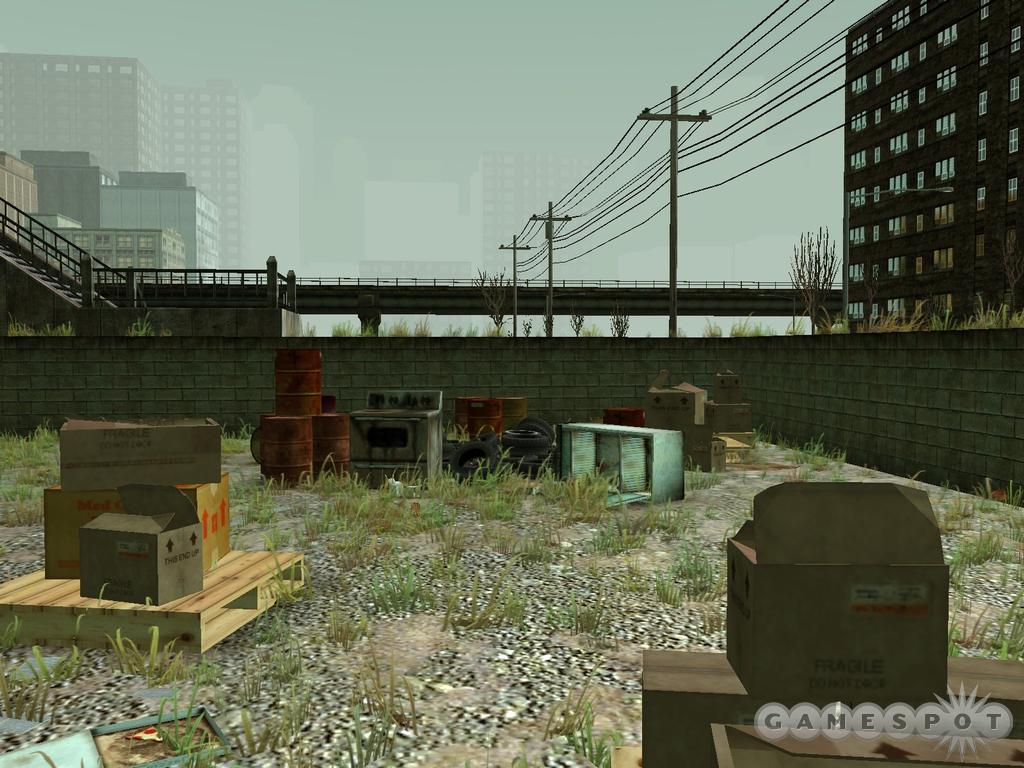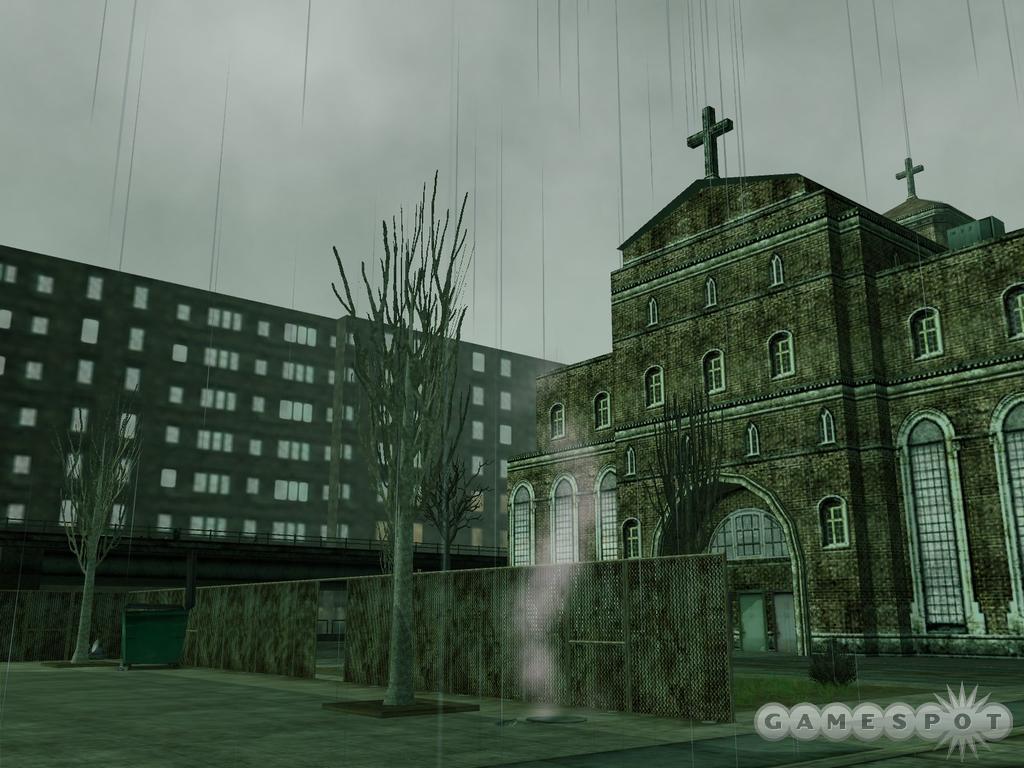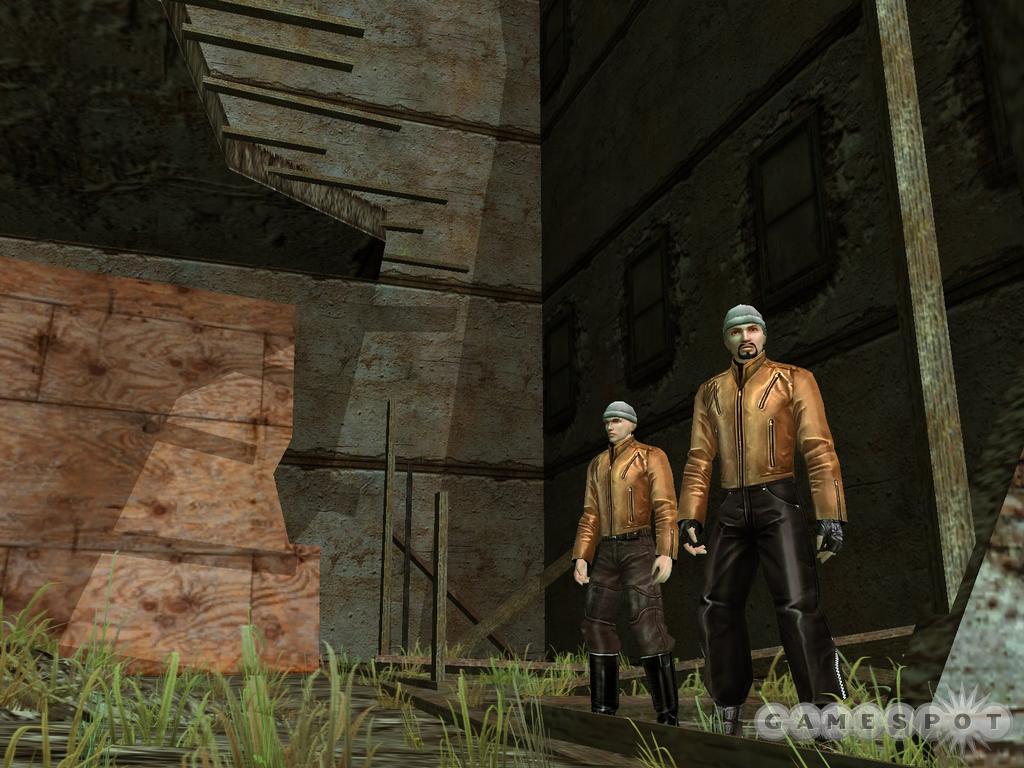The Matrix Online Updated Q&A
Producer William Westwater and engineer Jeff Everett talk about some of the features in the game, including the graphics engine and the skill tree.
When The Matrix Online launches later this year, you'll need to buckle your seat belt, because Kansas is going bye-bye. That's because The Matrix Online is an online role-playing game that will allow you and thousands of other players to live and adventure in the virtual cityscape of the Matrix, the elaborate computer simulation that's designed to keep humans unaware of the fact that they have become organic batteries for the machine overlords. In addition to being able to play as a human fighting the machines, you'll also have the opportunity to switch sides to work for the machines or the Merovingian instead. We had the opportunity to catch up with producer William Westwater and programmer Jeff Everett to learn more about the game.

GameSpot: We understand that the game will take place in one huge city, divided into four districts. Why was the decision made to design the world in this way, rather than as a single, continuous city or as multiple cities separated into different areas?
William Westwater: After meeting with John Gaeta (the visual effects supervisor of the Matrix movies) and some of the other production designers on the films, we got our hands on the high-level maps of Mega City. It turns out that the Matrix is not so much a replication of 20th century America as an extrapolation of it. That's a wordy way of saying that there is only one city in the Matrix. Oh, it's a big city--infinite, in fact--but it's still one enormous city. Now, we could have made something infinite, but we somehow thought better of that, and instead we focused on some of the most interesting parts of the city center. We are shipping with four districts but fully expect that more of the city will be revealed in the future.
GS: We've caught glimpses of characters wearing extravagant clothing while fighting battles with fancy martial arts and submachine guns, in addition to using "programs" (the game's equivalent of magic spells). What are some of the technical features being used to make The Matrix Online look as good as it possibly can?
Jeff Everett: Well, for the world, we use a reflection map for the sun, with pixel shaders for lighting up variants at night. We also mimic cloud cover with a texture overlay projected onto the surface of the city. And when it gets wet at night, we add a real-time reflection map from lights in the area, such as the street lights, and reflect it off the streets. Then, to capture some of the movie mood, we have a green-shift overlay with an overbright pixel shader that works a bit like a high-dynamic range filter (only a bit simpler). Interiors also use factor-map light-mapping with a dynamic scale option for turning lights on and off, plus support for a range of bump-, detail-, and environment-mapping, although they're more standard for first-person shooters. For the characters, we use a special-scaled bump-environment map to simulate leather, and to save on memory, we use a color-mod pixel shader for many of the clothing tones. We also build the characters with many levels of detail.

GS: However, we've seen previous games try to cram detailed characters and lots of special effects onscreen at once, and the result is usually that the frame rate slows to a crawl. How is all this going to take place onscreen while keeping the game running smoothly?
WW: Online games are designed to last a long time--years, in the best case--so we designed the graphics and world to scale heavily. Characters, effects, buildings, and lighting are all scalable, and you can turn down the bells and whistles to keep your frames per second humming.
Red Pill or Blue Pill
GS: Given that The Matrix Online is a computer game based on a motion picture that essentially suggests that life as we know it is, itself, a computer game, are there any special technical tricks the game will use to distinguish itself from other, similar games--aside from AOL Instant Messenger support?

WW: Yes. Well, The Matrix Online suggests life as you know it--if your life includes assassination, murder, double crosses, and the muscles and reflexes of martial arts masters. I admit that, like you, this is my life. For me, The Matrix Online will be a soothing alternative to my everyday threat of extermination. For others, MxO will be the chance to see the first online game with genuine martial arts where the players determine the future of one of the world's most popular movie franchises. As we like to point out: "The future of the Matrix is in your hands."
GS: From your perspective, could you tell us about the character skill system and how it will let players customize their characters? About how many skills will there be, and how will players' abilities to switch to different skills on the fly affect the game? How are these features being tested to make sure they don't break the game technically or in gameplay balance terms?
WW: The Matrix Online uses an ability system built around the concepts of programs and virtual identities. Your character is defined both by your current loaded programs and by your experiences within the Matrix. As you gain in levels, you are capable of interfacing with more- and more-powerful programs. This allows you to flexibly adjust your character's abilities from play session to play session. Your healer just quit for dinner? No problem. Head back to the loading area to reconfigure. At the same time, you also have persistent gains from your experiences that stick around and represent your character's mental and emotional growth. Flexibility with accomplishment, I like to say.
As for balancing the system, we create programs that simulate aspects of the game balance--modeling combat, for instance. These are combined with careful analysis of the dependency trees and then verified with powerful Oracle data-mining tools that monitor the game simulation. Finally, if we have any doubts, we consult the magic eight ball. The eight ball knows all.
GS: We've touched on this briefly, but could you tell us more about the role of AOL Instant Messenger in the game? To what degree will this chat tool be integrated into the game, and what can it be used for? Just interacting with other players? Or will there be interactions with the game itself? Will players ever receive random messages from the game that will tell them to "Follow the white rabbit," for instance?
WW: AIM is used for peer-to-peer messaging between players. The concrete effects of this are that you can IM a player-buddy from anywhere in the world and reach him in the game or in his office. It pushes the boundary of the society beyond the strict limits of the game simulation. We think this is pretty cool. As for pushing content, we're generally staying away from that. Your friends will be enough pull to get you coming back.

GS: Tell us about the role of The Daily Sentinel, the "newspaper" of the Matrix. Will it simply give daily updates? How reactive will it be to player activities? If players accomplish some huge goal of defeating a powerful enemy or completing an epic quest, can we expect to see mention of this and other player activities in the Sentinel?
WW: The Daily Sentinel is one of the "blue pill" elements in the game. As with all things blue pill, the Sentinel represents a false view of the world but with occasional windows into the truth behind the facade. We expect the Sentinel to react to player activity but in an indirect way--often misinterpreting or misrepresenting the activities of the players.
GS: Thanks, William and Jeff.
Got a news tip or want to contact us directly? Email news@gamespot.com
Join the conversation